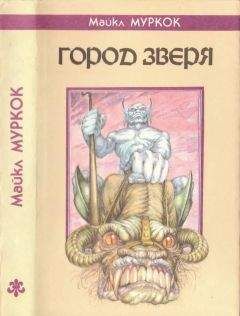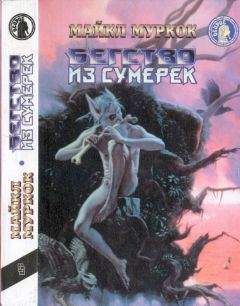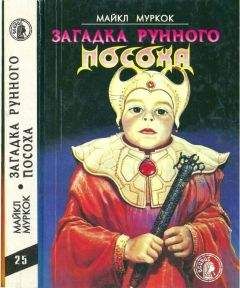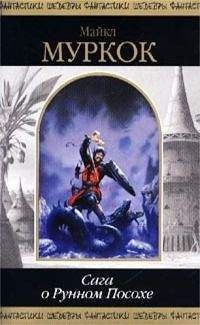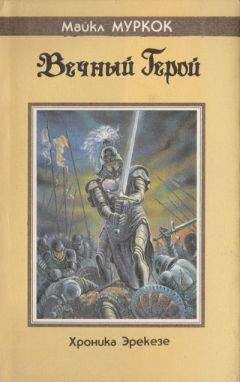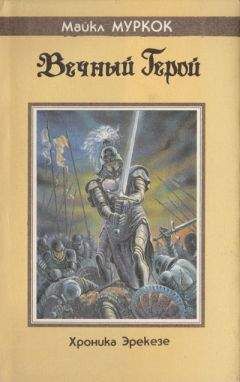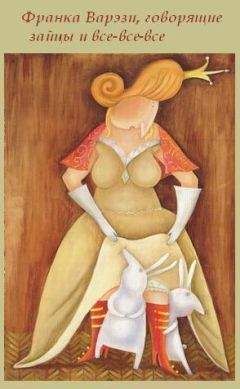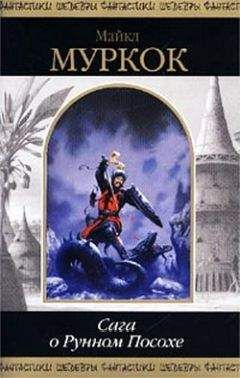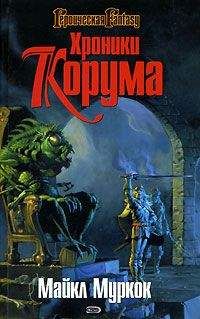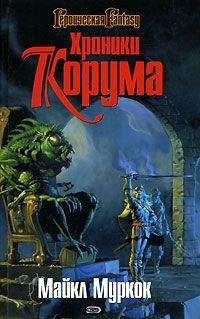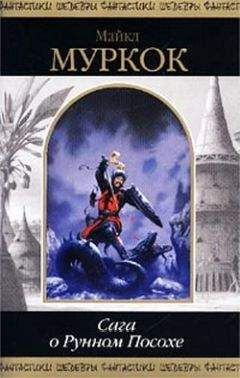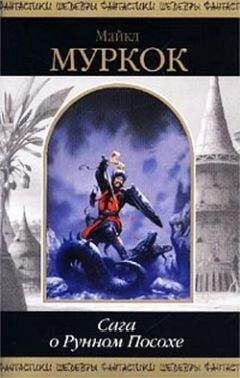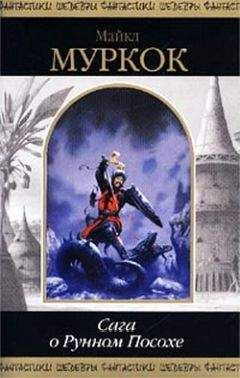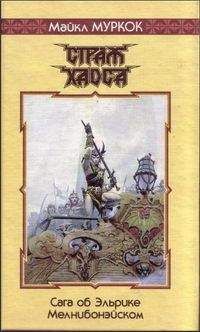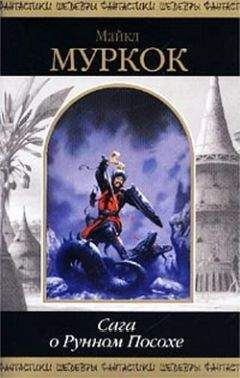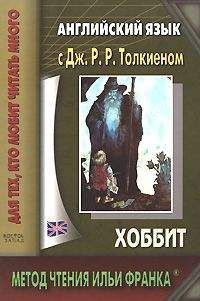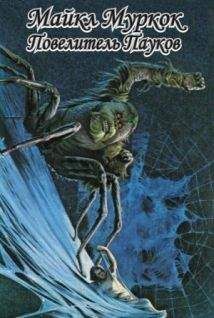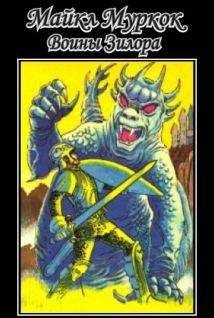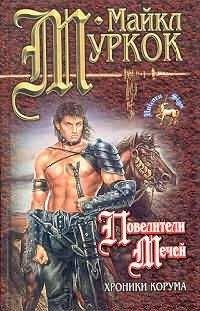Майкл Муркок - Английский язык с М. Муркоком
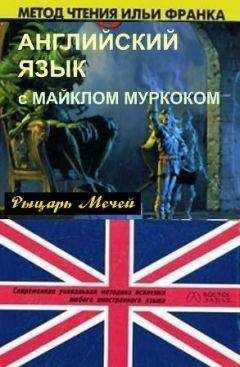
Скачивание начинается... Если скачивание не началось автоматически, пожалуйста нажмите на эту ссылку.
Жалоба
Напишите нам, и мы в срочном порядке примем меры.
Описание книги "Английский язык с М. Муркоком"
Описание и краткое содержание "Английский язык с М. Муркоком" читать бесплатно онлайн.
В книге предлагается произведение "Рыцарь Мечей" Майкла Муркока, адаптированные (без упрощения текста оригинала) по методу Ильи Франка. Уникальность метода заключается в том, что запоминание слов и выражений происходит за счет их повторяемости, без заучивания и необходимости использовать словарь. Пособие способствует эффективному освоению языка, может служить дополнением к учебной программе. Предназначено для студентов, для изучающих английский язык самостоятельно, а также для всех интересующихся английской культурой.
Метод чтения Ильи Франка
They crossed the enclave and entered a courtyard that was surrounded by an enclosed walk and had a fountain in its centre (они пересекли зал и вошли во внутренний двор, который был окружен крытой галереей, а в центре находился фонтан).
enclave [ˈenkleɪv] beautiful [ˈbju:tɪful] courtyard [ˈkɔ:tjɑ:d] fountain [ˈfauntɪn]
Reaching the gates of the palace, they all dismounted and servants, as thin and tall as the warriors, with the same astonished round faces, took away the mounts. Corum was led through the gates, up a staircase of more than a hundred steps, into an enclave. The designs on the walls of the palace were less colourful but more elaborate than those on the outer walls of the city. These were chiefly in gold, white and pale blue. Although faintly barbaric, the workmanship was beautiful and Corum admired it.
They crossed the enclave and entered a courtyard that was surrounded by an enclosed walk and had a fountain in its centre.
Under an awning was a large chair with a tapering back (под навесом находился большой трон с суживающейся кверху спинкой; chair — стул, кресло; трон). The chair was made of gold and a design was picked out upon it in rubies (трон был сделан из золота, украшенный узором из рубинов; to pick out — отделывать, украшать). The warriors escorting Corum came to a halt (воины, сопровождавшие Корума, остановились) and almost immediately a figure emerged from the interior (и почти тотчас вышла фигура из внутренних помещений). He had a huge, high head-dress of peacock feathers (у этого человека был огромный, высокий головной убор из павлиньих перьев), a great cloak, also of many brilliant feathers, and a kilt of thin gold cloth (большой = просторный плащ, тоже из множества сверкающих перьев, и юбка из тонкой золотой ткани). He took his place on the throne (он занял место на троне). This, then, was the ruler of the city (значит, он был правителем города).
The leader of the warriors and his monarch conversed briefly in their own language (командир воинов и его повелитель поговорили немного на своем языке; monarch — монарх, государь; briefly — кратко, сжато) and Corum waited patiently, not wishing to behave in any way that these people would judge to be unfriendly (Корум ждал терпеливо, не желая поступить так = сделать что-либо, что эти люди расценили бы недружелюбным = сочли враждебным).
At length the two creatures stopped conversing (наконец эти два существа прекратили разговор). The monarch addressed Corum (правитель обратился к Коруму). He seemed to speak several different tongues until at length Corum heard him say, in a strange accent (видимо, он говорил на нескольких языках, пока наконец Корум не услышал, как тот сказал со странным акцентом):
rubies [ˈru:bɪz] interior [ɪnˈtɪ (ə) rɪə] feather [ˈfeðə] throne [Ɵrəun] monarch [ˈmɔnək]
Under an awning was a large chair with a tapering back. The chair was made of gold and a design was picked out upon it in rubies. The warriors escorting Corum came to a halt and almost immediately a figure emerged from the interior. He had a huge, high head-dress of peacock feathers, a great cloak, also of many brilliant feathers, and a kilt of thin gold cloth. He took his place on the throne. This, then, was the ruler of the city.
The leader of the warriors and his monarch conversed briefly in their own language and Corum waited patiently, not wishing to behave in any way that these people would judge to be unfriendly.
At length the two creatures stopped conversing. The monarch addressed Corum. He seemed to speak several different tongues until at length Corum heard him say, in a strange accent:
`Are you of the Mabden race (ты из народа мабденов)?
It was of the old speech of the Nhadragh, which Corum had learned as a child (это был старый язык надрагов, который Корум учил в детстве: «/будучи/ ребенком»).
`I am not (нет), he replied haltingly (ответил он, запинаясь).
`But you are not Nhedregh (но ты и не недрег).
`Yes — I am not — "Nhedregh (да, я не «недрег») ". `You know of that folk (ты знаешь об этом народе)?
`Two of them lived among us some centuries since (двое из них жили среди нас несколько столетий назад). What race are you (/из/ какого народа ты)?
`The Vadhagh.
The king sucked at his lips and smacked them (король пососал губы и чмокнул ими).
haltingly [ˈhɔ:ltɪŋlɪ] centuries [ˈsenʧərɪz]
`Are you of the Mabden race?
It was of the old speech of the Nhadragh, which Corum had learned as a child.
`I am not, he replied haltingly.
`But you are not Nhedregh.
`Yes — I am not — «Nhedregh». `You know of that folk?
`Two of them lived among us some centuries since. What race are you?
`The Vadhagh.
The king sucked at his lips and smacked them.
`The enemy, yes, of the Nhedregh (враг, да, недрегов)?
`Not now (теперь нет).
`Not now? The king frowned (король нахмурился).
`All the Vadhagh save me are dead (все вадаги, кроме меня, погибли), Corum explained (пояснил Корум). `And what is left of those you call Nhedregh have become degenerate slaves of the Mabden (а /те/, что остались от тех, кого ты называешь недрегами, стали выродившимися = жалкими рабами мабденов).
`But the Mabden are barbarians (но мабдены — варвары)!
`Now they are very powerful barbarians (теперь они очень могущественные варвары).
The king nodded (король кивнул).
`The enemy, yes, of the Nhedregh?
`Not now.
`Not now? The king frowned.
`All the Vadhagh save me are dead, Corum explained. `And what is left of those you call Nhedregh have become degenerate slaves of the Mabden.
`But the Mabden are barbarians!
`Now they are very powerful barbarians.
The king nodded.
`This was predicted (это было предсказано). He studied Corum closely (он внимательно рассматривал Корума). `Why are you not dead (почему ты не погиб)?
`I chose not to die (я решил не умирать).
`No choice was yours if Arioch decided (никакой выбор не был бы твоим = никто не посчитался бы с твоим выбором, если бы Ариох решил).
`Who is «Arioch» (кто такой «Ариох»)?
`The God.
`Which God?
`The God who rules our destinies (бог, который управляет нашими судьбами). Duke Arioch of the Swords (герцог Ариох Мечей).
`The Knight of the Swords (Рыцарь Мечей)?
predicted [prɪˈdɪktɪd] destiny [ˈdestɪnɪ] duke [dju:k]
`This was predicted. He studied Corum closely. `Why are you not dead?
`I chose not to die.
`No choice was yours if Arioch decided.
`Who is «Arioch»?
`The God.
`Which God?
`The God who rules our destinies. Duke Arioch of the Swords.
`The Knight of the Swords?
`I believe he is known by that title in the distant south (полагаю, он известен под этим титулом на дальнем юге). The king seemed deeply disturbed now (король казался глубоко встревоженным теперь). He licked his lips (он облизнул губы). `I am King Temgol-Lep (я король Темгол-Леп). This is my city, Arke (это мой город, Арк). He waved his thin hand (он обвел /кругом/ своей тонкой рукой). `These are my people, the Ragha-da-Kheta (это мои подданные, рага-да-кета). This land is called Khoolocrah (эта страна называется Кулокрах). We, too, soon shall die (мы тоже вскоре умрем).
`Why so (отчего же)?
`It is Mabden time (это время мабденов). Arioch decides (/так/ решает Ариох). The king shrugged his narrow shoulders (король пожал узкими плечами). `Arioch decides. Soon the Mabden will come and destroy us (скоро мабдены придут и уничтожат нас).
`You will fight them, of course (выбудете с ними сражаться, конечно)?
distant [ˈdɪst (ə) nt] destroy [dɪsˈtrɔɪ]
`I believe he is known by that title in the distant south. The king seemed deeply disturbed now. He licked his lips. `I am King Temgol-Lep. This is my city, Arke. He waved his thin hand. `These are my people, the Ragha-da-Kheta. This land is called Khoolocrah. We, too, soon shall die.
`Why so?
`It is Mabden time. Arioch decides. The king shrugged his narrow shoulders. `Arioch decides. Soon the Mabden will come and destroy us.
`You will fight them, of course?
`No. It is Mabden time. Arioch commands (Ариох /так/ велит). He lets the Ragha-da-Kheta live longer because they obey him, because they do not resist him (он позволяет рага-да-кета жить дольше, потому что они повинуются ему, потому что не сопротивляются ему). But soon we shall die.
Corum shook his head (покачал головой).
`Do you not think that Arioch is unjust to destroy you thus (вы не думаете, что Ариох несправедлив, уничтожая вас таким образом)?
`Arioch decides.
It occurred to Corum that these people had not once been so fatalistic (Коруму пришло в голову, что эти люди когда-то не были столь фаталистичны = покорны судьбе). Perhaps they, too, were in a process of degeneration, caused by the Knight of the Swords (возможно, они также были в процессе = пережили упадок, вызванный Рыцарем Мечей).
`Why should Arioch destroy so much beauty and learning as you have here (зачем Ариоху уничтожать такую красоту и знания, которые у вас здесь)?
`Arioch decides.
obey [ə (u) ˈbeɪ] unjust [ʌnˈʤʌst] fatalistic [, feɪtəˈlɪstɪk]
`No. It is Mabden time. Arioch commands. He lets the Ragha-da-Kheta live longer because they obey him, because they do not resist him. But soon we shall die.
Corum shook his head.
`Do you not think that Arioch is unjust to destroy you thus?
`Arioch decides.
It occurred to Corum that these people had not once been so fatalistic. Perhaps they, too, were in a process of degeneration, caused by the Knight of the Swords.
`Why should Arioch destroy so much beauty and learning as you have here?
`Arioch decides.
King Temgol-Lep seemed to be more familiar with the Knight of the Swords and his plans than anyone Corum had yet met (казалось, король был лучше знаком с Рыцарем Мечей и его планами, чем кто-либо, встреченный ранее Корумом). Living so much closer to his domain, perhaps they had seen him (живя так близко от его владений, возможно, они /даже/ видели его).
`Has Arioch told you this himself (Ариох сам сказал вам это)?
`He has spoken through our wise ones (он говорил через наших мудрецов).
`And the wise ones — they are certain of Arioch's will (а ваши мудрецы — они уверены в воле = что такова воля Ариоха)?
`They are certain (они уверены).
Corum sighed (вздохнул).
`Well, I intend to resist his plans (что ж, я намерен препятствовать /осуществлению/ его планов). I do not find them agreeable (я не нахожу их приемлемыми = они меня не устраивают)!
King Temgol-Lep seemed to be more familiar with the Knight of the Swords and his plans than anyone Corum had yet met. Living so much closer to his domain, perhaps they had seen him.
`Has Arioch told you this himself?
`He has spoken through our wise ones.
`And the wise ones — they are certain of Arioch's will?
`They are certain.
Corum sighed.
`Well, I intend to resist his plans. I do not find them agreeable!
King Temgol-Lep drew his lids over his eyes and trembled slightly (прикрыл веками глаза и вздрогнул слегка; to draw over — натягивать поверх, накрывать). The warriors looked at him nervously (воины посмотрели на него беспокойно). Evidently they recognised that the king was displeased (очевидно, они понимали, что король недоволен).
`I will speak no more about Arioch (я больше не буду говорить об Ариохе), King Temgol-Lep said. But as our guest we must entertain you (но, как нашего гостя, мы должны развлекать тебя). You will drink some wine with us (ты выпьешь вина с нами).
`I will drink some wine. I thank you.
Corum would have preferred food to begin with (Корум предпочел бы начать с еды = поесть сначала), but he was still cautious of giving offence to the Ragha-da-Kheta (но по-прежнему опасался обидеть рага-да-кета; cautious — осторожный, осмотрительный; to give offence — оскорбить, обидеть), who might yet supply him with the boat he needed (которые могли предоставить ему лодку, в которой он нуждался; to supply with — снабжать).
Подписывайтесь на наши страницы в социальных сетях.
Будьте в курсе последних книжных новинок, комментируйте, обсуждайте. Мы ждём Вас!
Похожие книги на "Английский язык с М. Муркоком"
Книги похожие на "Английский язык с М. Муркоком" читать онлайн или скачать бесплатно полные версии.
Мы рекомендуем Вам зарегистрироваться либо войти на сайт под своим именем.
Отзывы о "Майкл Муркок - Английский язык с М. Муркоком"
Отзывы читателей о книге "Английский язык с М. Муркоком", комментарии и мнения людей о произведении.





